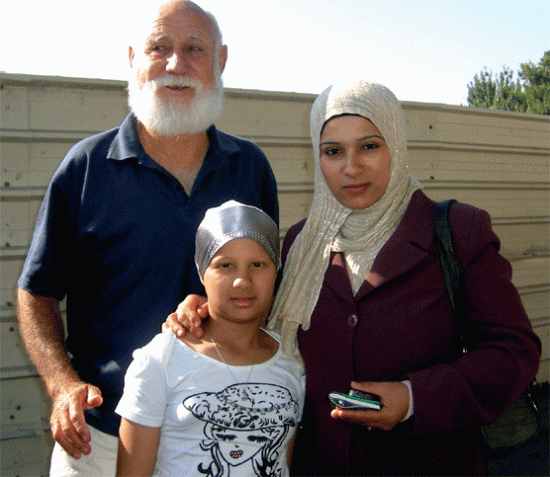
Amatzia Dayan, from Ein Hashofet, with Palestinian mother and her sick daughter, outside Rambam Medical Center, Haifa
Way to Recovery – Volunteers transport Palestinian mothers and children from the checkpoints to treatments in Israeli hospitals.
Seven in the morning with heat and humidity already on the rise, two young Palestinian mothers and their children walk through a narrow, wire-mesh tunnel leading from the Jenin side of the Jalameh checkpoint to the Israeli side.
The checkpoint is a few kilometers down the road from Kibbutz Yizreel, in the shadows of the Gilboa mountain range with the sprawling autonomous Palestinian Authority controlled city of Jenin just a few kilometers away, but clearly visible even though there is an early morning damp fogginess hanging over the Jezreel Valley.
The children are seriously ill. An 8 year-old girl with cancer, a silk scarf tied tightly around her smooth head, and a little boy – not yet 2 years of age - struck by a crippling kidney disease. Both children are undergoing treatment at Rambam Medical Center in Haifa. The young girl is on her way to Rambam with her mother for a checkup after a course of radiation, the little boy on his daily run from Jenin to Haifa and back again. Six days a week his mother brings him through the checkpoint cradled on her arm, a small carry bag with clean clothing and some food slung over her other shoulder.
Although the Palestinian Authority allows these and many hundreds more sick children and adults to leave the West Bank for treatment in Israel, nobody either side of the checkpoint takes responsibility for their transportation from checkpoints to the hospitals, or return journey at the end of the day. The journey from Jalameh to Rambam takes about an hour.
Already at seven in the morning the car park on the Israeli side of the Jalameh checkpoint is abuzz with activity. Scores of men, mostly in their mid 30s and above, are gathering on the curbsides waiting for their employers to collect them. Others jump into already waiting vehicles and head off to another work day in construction or agriculture in the Jezreel Valley. Late afternoons the scene is reversed as the workers – and the sick - return the way they came – back through the checkpoint to Jenin and surrounding villages on the other side of the Green Line running over the Gilboa mountain and across this corner of the valley.
A Palestinian explains that on a good day it takes around 45 minutes to travel from his village to the checkpoint, 20 minutes to get through and ten minutes from there to his workplace, a factory near Afula.
What about a not-so-good day?
"These days it doesn't happen very often, but then if there are problems it is a tossup between a few hours waiting to get through or not at all if they decide to close the checkpoint," said Jalal, a fifty something father of five, grandfather of six, who didn't want to give his family name.
A tall, distinguished looking gentleman with closely cropped white hair and beard to match, sparkling eyes and broad smile on his face, gets out of a large white van and greets the two young mothers and children.
The smiles are returned – broadly.
Amatzia Dayan, a seventy-something member of kibbutz Ein Hashofet, a tour guide by profession and volunteer driver for the Derech Hachlama – Way to Recovery – organization, is for the ladies and their children, a knight on a white horse – well, on four wheels anyway.
The organization was founded four years ago by Israeli, Yuval Roth, who resides in the small town of Karkur in the predominantly Arab area of Wadi Ara that runs parallel to the Green Line and just a few kilometers from the pre-1967 border between the State of Israel and what was then the Jordanian controlled West Bank.
Fifteen years ago a brother of Yuval Roth, undertaking his annual reserve duty and serving in the West Bank, was murdered by Palestinian terrorists disguised as religious Jews who picked up the hitchhiking reservist.
Roth became a member of the Bereaved Families Circle and when a Palestinian member of that organization – being treated in an Israeli hospital – asked for help with transportation to and from the hospital, Yuval Roth didn't hesitate and a new organization was born. These days hundreds of Palestinians are met by volunteer drivers the likes of Amatzia Dayan, their roster organized and sent out by Roth.
"Everybody does whatever they can but it is a costly business with petrol prices being what they are," explains Amatzia as we head for Haifa, the young mothers and children settled on the seats behind us – the toddler already fast asleep, the little girl beginning to nod off on her mother's shoulder.
"The strain on the organization is enormous as more and more patients appeal for help with transportation, whether it be to Rambam or hospitals situated in the center of the country," explained Amatzia Dayan – a nephew of Israeli hero Moshe Dayan – who whilst chatting is constantly glancing in the driver’s mirror to see that all is okay with his passengers.
With extremely basic Arabic, a short conversation between him and the ladies has them understand that there will also be someone waiting to take them home at the end of the day. There might be a shortage of conversation, but there is certainly no shortage of smiles and head nodding all the way to Haifa and Rambam.
Yuval Roth drives a somewhat battered van – the back of which is piled high with metal cooking pots and all sorts of other bits and pieces. Joining Yuval for a more in-depth explanation about Derech Hachlama, I find myself driving with him to Kibbutz Metzer where he is picking up a Palestinian friend, Walid, a resident of the West Bank village of Yabed who works in the kibbutz factory and needs to get from there to the Reichan-Barta'a checkpoint, a good half hour drive away.
"Walid was always involved in projects encouraging Palestinians and Israelis to meet and get to know one another. He still continues to talk with many of the people in his area about the possibilities of living in peace," explains Yuval as we drive along, the pots and pans making quite a racket in the back.
Arriving at Metzer, a kibbutz where five people – including two young children – were brutally murdered by a Palestinian terrorist in 2002 – one is struck by a sign hanging on the electronic gate of the kibbutz. In five languages, Hebrew, Arabic, Spanish, English and Russian, the kibbutzniks, who farm land right up to the Green Line, extend a welcoming hand to visitors – who come in peace.
Pulling up outside the factory, Yuval honks his horn and Walid – a stocky, black haired and jovial man in his fifties, steps out and jumps into the van. Walid speaks near perfect Hebrew and immediately launches into an explanation about where the village of Yabed is situated, of his years of friendship with many Israeli Jews and of the difficulties faced in going to and fro through the checkpoint to his village – which can be seen perched on a high hill in the middle of the Dotan valley just kilometers from where he works but worlds apart, separated these days by an electronic security fence and series of checkpoints for those with permission to pass through – and return home at the end of a working day, family or hospital visitation.
Palestinians gathered at the Reichan-Barta'a checkpoint call Jewish Israelis the likes of Amatzia Dayan and Yuval Roth 'Anashim Tovim' – the good people.
"I help wherever I can, nothing political - purely for humanitarian reasons," said Amatzia Dayan, pulling in to the driveway of the Rambam Medical Center to drop off the children and their mothers. Papers need to be shown, bags need to be checked and goodbyes need to be said.
The young patient from Jenin clutches her mother's hand as Amatzia is about to re-enter the vehicle.
"Toda raba," (thank you very much) they both call out in Hebrew, and wave as they enter the building together with the other lady, her son fast asleep on her shoulder.
At four o'clock in the afternoon another 'good person' will be there waiting to take them back to the Jalameh checkpoint, and again at 7 a.m. the next day another will be waiting to return the boy to Haifa for his life saving dialysis once more.
Way to Recovery can be contacted at 0505 281890 if you would like to volunteer or donate money to it.
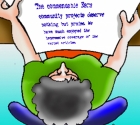 DEAR EDITOR 152
DEAR EDITOR 152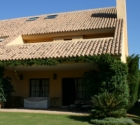 TIDBITS, COMMENTS AND ODDITIES-152
TIDBITS, COMMENTS AND ODDITIES-152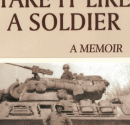 TAKE IT LIKE A SOLDIER - A MEMOIR - A Review
TAKE IT LIKE A SOLDIER - A MEMOIR - A Review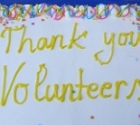 A new website in English - on Volunteering - Launched in Israel
A new website in English - on Volunteering - Launched in Israel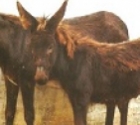 Help Needed for Abused Horses and Donkeys
Help Needed for Abused Horses and Donkeys Heather's Heseg
Heather's Heseg Lydia Aisenberg
Lydia Aisenberg